
Are the ties between British Muslims and the Left sustainable?
Amidst rising Islamophobia, British leftists have been outspoken in support of Muslims. In the recent election, Jeremy Corbyn’s Labour gained significant support in constituencies with large Muslim populations. But just how solid is this alliance?
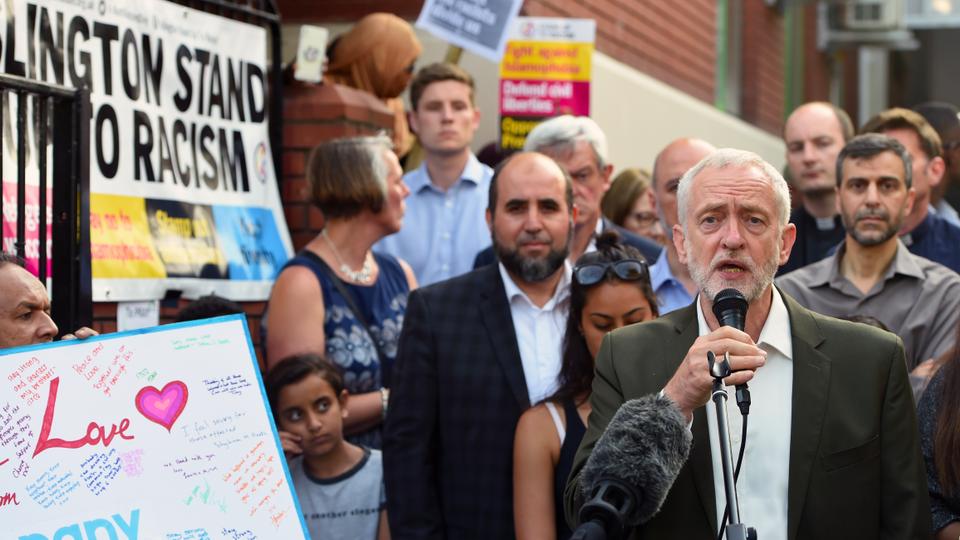
In Emily Bronte’s novel, Wuthering Heights,
the two central characters, Heathcliff and Catherine, perceive
themselves as having a deep, common bond. Catherine argues at one point
that there is actually no difference between them. She is unable to
marry Heathcliff, however, and ultimately conforms to prevailing social
norms of the day, a choice Heathcliff views as betrayal. As a result,
what begins as a deep initial affinity eventually leads to mutual
destruction.
Likewise, several leading British Muslim thinkers
have argued that, despite sharing ideals such as resisting oppression,
the impact of Muslims’ consociation with the Marxist left could render
the values of the former with a fate similar to the protagonists in
Bronte’s 19th century classic: weakened, confused and, ultimately,
lifeless.
There are a number of differences between the
teachings of Marxist socialism and Islam: attitudes on homosexuality,
on whether society should primarily be defined through the lens of
social class, and perhaps most important, on the very purpose of life.
Yet
these debates are taking place just as British politics is providing
Muslims with a long-awaited breath of fresh air. For the first time
since September 11, one of the two major political parties is being led
by someone who is not fundamentally hostile towards them: Jeremy Corbyn.
Corbyn has been leading the Labour Party in opposition to the Conservative government since 2015, and may go on to become prime minister.
Corbyn
is working to re-introduce socialist principles into Labour’s policies,
which have been dominated by former Labour leader Tony Blair’s
neoliberal political agenda, throughout the late nineties and noughties.
The ideological shift under Blair contributed to him leading Britain
into wars in Afghanistan and Iraq. Partly as a result of these wars and
their offshoots, Muslims in Britain have suffered increasing
Islamophobia from various elements of society, including from successive
governments which have continued to enforce controversial and widely
discredited counterterror policies that many view as marginalising Muslims.
Corbyn
has repeatedly spoken out against such security-centric policies,
Islamophobia and wars in Muslim countries, and has praised Islam and
built strong links within the British Muslim community.
Speaking to Muslims after a far-right terror attack outside a London mosque in June, for instance, he said:
“At its core Islam is a religion of peace, it is a religion of support,
it is a religion of charity. I want to thank the Muslim community for
the fantastic contribution you’ve made ... to our community across the
country.”
Common ground over economic issues
But
as Corbyn and his left-wing socialist support base play a more
influential role in British politics, will it be the differences or the
similarities between Islam and socialism which become more apparent? And
just how widely is concern about these differences reflected in the
diverse British Muslim community?
Joao Silva Jordao is a
twenty nine year old Portuguese convert to Islam, currently studying
for a PhD in urban planning. He splits his time between London and
Lisbon and is engaged in British politics as a leftist activist. Because
Corbyn is “against economic inequality and support for the poor is
central to Islam, as is helping the oppressed,” he says, the Labour
leader stands out against the current conservative prime minister,
Theresa May.
For Jordao, though, Corbyn represents a
dwindling element of the Marxist left that is being replaced by a new
“narrow minded” generation of leftists who, he feels, have been sucked
into a vortex of identity politics, specifically regarding homosexuality
and transgender issues, which, for him, distracts from what he views as
bigger economic and social issues, such as welfare provision and free
healthcare.
Recently in Britain there have been demands for universities to stop referring to students as male or female, in order to avoid discriminating against those who feel they are “gender fluid,” spearheaded by left leaning student groups.
“I
fear that the new Left generation has begun to lose the plot,” he
states. “I am finding it increasingly hard to work in Left activist
groups and I imagine many Muslims are finding the same.”
“Sometimes
it seems as though they adopt positions only on the basis of it being
the opposite of what they consider to be 'conservative' or
'old-fashioned' and thus crave to be opposed to whatever Christians
believe,” he asserts. “This naturally puts them at odds with Islam as
well.”
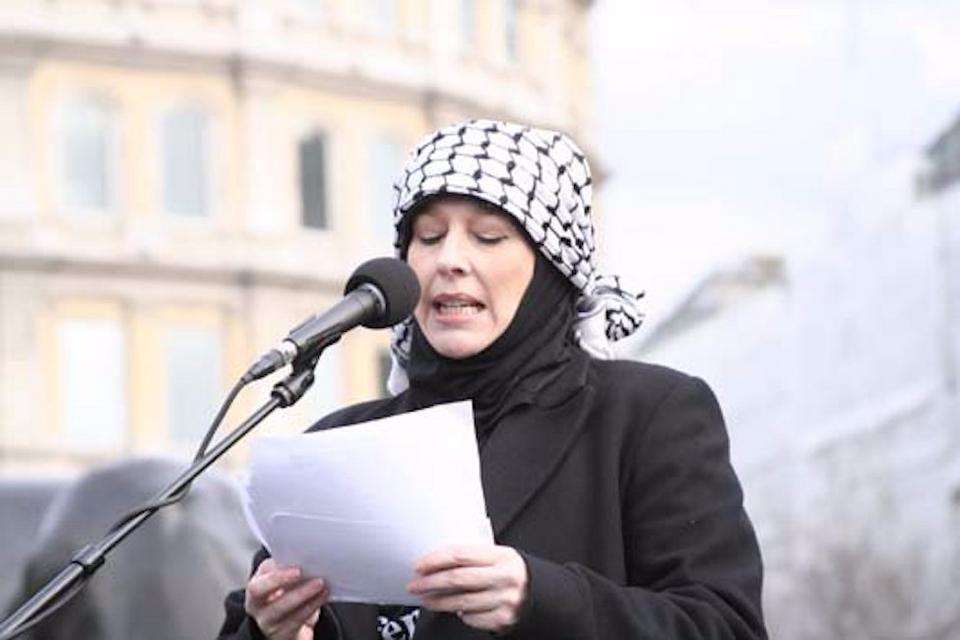
“I was born in a coal mining
town; Stanley in County Durham. It was very much a working-class
environment,” Ridley, aged in her mid-50s, says, explaining how her
experiences in north-east England in the seventies and eighties shaped
her perspective.
Under sweeping policies from successive
Conservative governments, this period saw the coal mining, steelmaking
and shipbuilding industries being largely destroyed.
“This
brought about a demise of the traditional working class communities and
I saw, with my own eyes, families, villages and towns suffer. I thought
the best antidote to this was socialism,” Ridley says. “The one thing
that did shine through was solidarity and comradeship among the working
classes and trade union movement.”
Helping fight Islamophobia
Ridley converted to Islam in the early 2000s.
She was captured by the Taliban in 2001 while working as a journalist
for British media. The Taliban encouraged her to convert. She replied
that, as a then-Christian, she couldn’t make that decision overnight,
but told the Taliban if they let her go she would promise to read the
Quran. They released her and she kept her promise, embracing Islam a
year later.
She found the focus on “fairness and
justice; helping the majority of people, not just the few” meant Islam
and socialism were compatible, despite the secular outlook of the
latter. For her, protesting Britain’s involvement in the 2003 invasion
of Iraq went a long way towards breaking down the barriers between her
faith and her political views.
“By the time I
became Muslim, the anti-war movement in Britain was quite strong and
because the coalition in the Stop the War movement was so broad, it
embraced a lot of Muslims,” she says. “For the first time, many people
who thought they had nothing in common were coming together.”
She
believes the greatest achievement of this alliance is that the Marxist
left, often viewed as being anti-religious, has, in the past sixteen
years, played a large role in defending the right of Muslims to practise
their faith without stigmatisation.
“Many non-Muslims have been exposed to Islam as a result of resisting the war in Iraq,” she says. “The two million strong march in 2003 in London saw a lot of mosques opening their doors in the early hours of the morning because people were bused in from all over the UK.”
This, she feels, has helped prevent Islamophobia from being even more widespread than it currently is.
“The
impact of all this has manifested itself in the aftermath of these
horrible terrorist attacks we’ve had [referring to several attacks that
have taken place in London and Manchester since 2005]. Many non-Muslims
say they know this is not Islam. They work to silence the very vocal
minority in Britain who try and promote the narrative that all Muslims
are terrorists.”
For Ridley, despite the differences
between the two, the Marxist value of solidarity fits well — for the
most part — with the Islamic value of plurality.
“When
the early Muslim community was under threat, they went and lived in
Abyssinia, now Ethiopia, and lived under the protection of a Christian
king. The Prophet Muhammad, peace be upon him, reached out to
non-Muslims.”
Fundamental moral differences
The
London businessman Mams Uddin agrees with Ridley on this synergy and
supports it, but explains that he believes Muslims can never fully
support a materialist political ideology for a key reason: “Islam does
not [recognise] any kind of disseverment between religion and life.
Born in Bangladesh and raised in south London, he once owned an urban music and lifestyle TV channel broadcasting on Sky cable.
“I
was very capitalist at the time. Just before my daughter was born I
decided to make changes in my life,” he says, explaining how he was
inspired by a desire to be a positive role model for his newborn.
“I
gave up the TV channel as well as many other things,” he says, and has
since focused on investing in the development of an education institute
in east London, providing courses in both traditional Islamic
jurisprudence and western political philosophy and finance.
Now
in his forties, Uddin is a Corbyn supporter who describes himself as a
“conservative socialist.” He has a pluralist outlook and accepts that
morality in a liberal, secular society will be mostly subjective and
therefore diverse. However, while he is willing to coexist with other
people’s moral codes, he feels not all are willing to accept the values
he and his co-religionists share. His response to this is earnest: “I
will not compromise my faith.”
He thinks his community is under pressure from elements of the left essentially attempting to undermine Muslims’ integrity.
But
the same could be said about some socialists feeling they have to
compromise their principles to accommodate the demands of Muslims such
as using taxpayer money to maintain the 28 state-funded Islamic faith schools. While the Marxist left has largely been hospitable to the religious beliefs of Muslims, at least since Islamophobia cascaded in 2001, a minority have condemned attempts to draw parallels between their political outlook and Islam.
For Uddin, like many Muslims, there is a particular thorny issue of difference. They feel that left-wing advocates such as Peter Tatchell
are attempting to obfuscate what, to them, are clear Quranic teachings
on the prohibition of homosexual activity in an attempt to gain
acceptability for something that is predominantly viewed in the Muslim
community as immoral. Tatchell has also been widely criticised
by Muslims and non-Muslims alike (many themselves on the left) for
equating religious opinion on homosexual acts with homophobic hate
preaching, though he has argued he is simply against those who incite
violence against gay people. He has also defended himself by pointing to his record of standing up for Muslims against false terrorism charges and Islamophobia.
“I have been working with progressive Muslim theologians and scholars for over three decades,” Tatchell, a non-Muslim, tells TRT World.
“They and I believe that Islamic orthodoxy regarding homosexuality is
often based on a misreading of the Quran and that it reflects cultural,
not religious, traditions.”
For the likes of Uddin, this holds no weight.
“The
political left are a fork-tongued entity,” Uddin argues. “On the one
hand, they actively support Muslims against Islamophobia, but without
fully understanding Islam they pressure Muslims to accept same sex
marriage as an integral part of the Muslim community, despite it being
contradictory to Islam.”
“We must be allowed to practise
our religion without pressure or oppression. Otherwise, how are they
different to the far-right?”
He explains why, in his view, this attitude is neither homophobic nor unique to same-sex relations:
“Muslims
do not have a problem with individuals who are sexually attracted to
people of the same sex. We acknowledge that while Islamic law prohibits
pre- and extramarital [relations], as well as same-sex sexual activity,
it does not attempt to curtail natural feelings, emotions or urges but
only certain actions resulting from them.”
“We
encourage all people to fight their urges outside the sanctity of lawful
marriage. The LGBT advocates need to understand that Muslims cannot
cherry-pick aspects of their faith and create a tailored version of
Islam to suit our needs,” he says. “We have to obey the rules we have
agreed to abide by.”
There are a number of Muslims who
take a different view from Uddin. Rabbil Sikdar, a recent international
relations graduate from east London, thinks LGBT rights should be placed
at the centre of Islam in the 21st century.
“I’ve
campaigned alongside gay people on the left-wing who, at great personal
risk, work tirelessly to defend Islam and Muslims. Why can’t we return
the favour?”
He believes Muslims were more tolerant at the time of the Prophet Muhammad than many in contemporary times are.
“I think we need to adopt that past inclusivity for groups that are being mistreated today, in the same way Muslims are.”
But
wouldn’t that mean tampering with divine authority, as laid out in the
Quran? Not necessarily, according to Sikdar. He’d like to see
interpretations of the holy book adjusted to suit today’s challenges,
rather than what he considers to be fabrications introduced which
distort the wording of divine revelation.
Social and gender justice
Diana
Alghoul, a 25-year-old British Palestinian journalist from north
London, subscribes to feminist socialism and finds it compatible with
Islam. She believes Muslims can benefit from some of the ideas of the
former to better apply core but often-ignored Islamic values, such as
gender justice.
“I get a lot of people criticising me,
saying I cannot be a feminist and a Muslim at the same time. To those
who say ‘Islam gives women rights so you don’t need to be a feminist’, I
say ‘Yes, Islam gives rights but unfortunately our males within the
Muslim community don’t give us our rights, and we need an organised
movement to fight for them’.”
Growing up in a
politically conservative household where “divisive elitist ideas” of
what she calls “the myth of social mobility” and migrants being a social
burden dominated, her adoption of socialism was a gradual process.
“I
guess the more I read and the older I got, the more I deconstructed the
ideas I grew up with,” she says. Crucial books which influenced her
include George Orwell’s 1984; Edward Said’s Orientalism; Ghassan Kanafani’s Palestinian Literature of Resistance Under Occupation; and Feminism Is For Everybody by Bell Hooks.
For
her, as with Ridley, Jordao and Uddin, Islam and socialism share the
core value of social justice achieved through the redistribution of
wealth.
“It’s all about the principle of fairness.
Islam has the principle of zakat which is in itself a tax and a pillar
of Islam,” she says, referring to the giving of alms to the poor.
“Also,
we as Muslims will be questioned on the Day of Judgement if we left a
human who was sick and could not afford health care [without offering
help] and we knew that we could afford to help them.”
She is cautious, however, about moulding her faith to fit her socio-political outlook, or vice-versa:
“I’d
be wary of marrying the two, because one is a belief system and one is
an actual religion. I wouldn’t say Islam is socialist but there are
qualities in Islam that match socialist morals. I wouldn’t exclusively
match the two together, because if God himself doesn’t do that, what
gives me the right to do so?”
“Islam is definitely not the ‘opiate’ of the people,” she says, referring to the famous quote by Karl Marx often used by Marxists to argue that in their view, the poor in feudal or capitalist societies turn to religion for comfort.
“No
social or socio-economic group can best represent Islam,” she says.
“The Left may have fought against Islamophobia with us, but that doesn’t
mean they represent Muslims.”
From her perspective, independent, critical analyses of issues in the Muslim ummah, or whole community of Muslims, risk being thwarted by aspects of the Left’s political peer pressure.
“There
is a lot of Islamophobia in leftist circles. I think the Left do a
brilliant job of critiquing and countering Islamophobic rhetoric that
comes from many right-wing politicians such as us not assimilating into
society, or Muslim refugees harbouring terrorists.”
Yet once Muslims diverge from the Left’s political discourse, she argues, they tend to be Islamophobic and ostracise them.
“I’ve
had some people accuse me of being an ISIS (Daesh) supporter because I
don’t support Assad. Or they see me as some sort of imperialist
‘Wahhabi’ terrorist because I don’t buy the discourse that Assad is an
anti-imperialist and I expose his crimes as a brutal dictator.”
She believes this attitude from elements of the Left “is a lot more dangerous than having Tommy Robinson [the co-founder of the far-right English Defence League] talking about Islam being evil.”
The
similarities and differences in values between Islam and the Left will
continue to be both celebrated and debated, as both groups play an
increasingly visible and vocal role in society. Labour gains in Muslim areas at the recent general election suggest that, for now, many are overlooking moral differences, but the question is whether or not that will continue.
In a rapidly changing world, are the differences going to make the relationship unsustainable? As Catherine in Wuthering Heights
found out, bending to social norms may prove to be a regrettable
decision. Yet, as Heathcliff realised, ending up alone as a result of
wanting your own way can be just as painful.
Source: TRT World

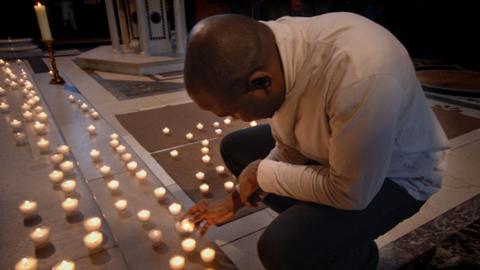
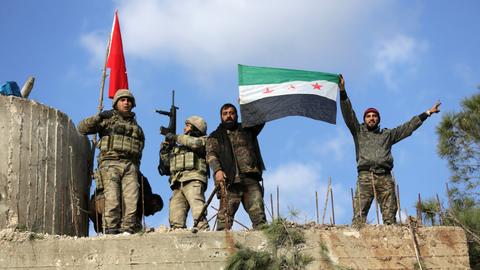

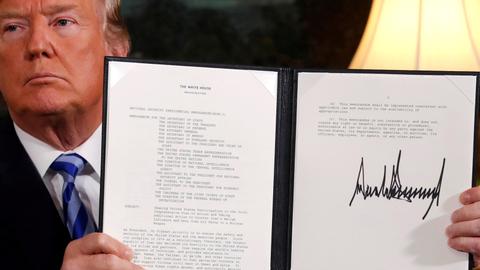
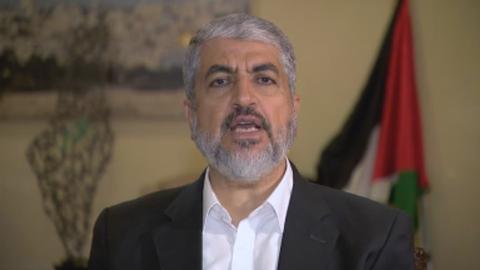
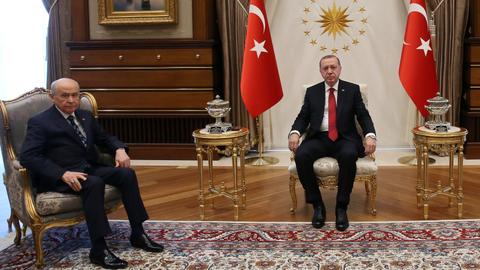
Comments
Post a Comment